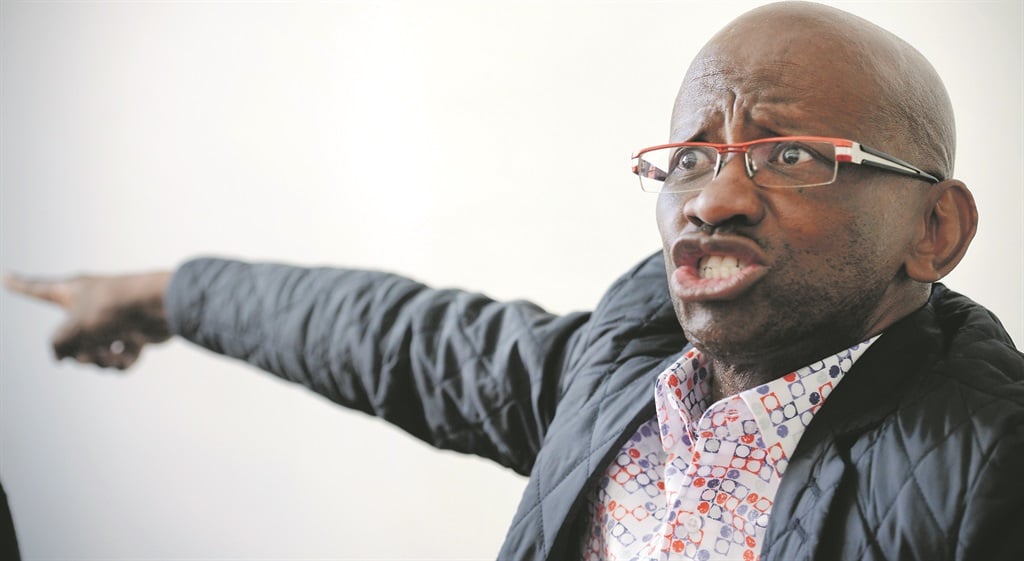
“I am still hurting. I am still bitter. I was supposed to be with my girlfriend. Instead, after that march and getting arrested, I spent years on Robben Island,” Seth Mazibuko says, his voice shaking.
When City Press arrives at the offices of the Moral Regeneration Movement – a nongovernmental organisation that works with local communities – Mazibuko is buoyant, full of laughs, apologising that the interview will not last too long because he has a number of appointments to keep.
But when we speak about a meeting in Soweto to reconcile various groups involved in the 1976 Soweto Uprising, in commemoration of its 40th anniversary, he is seething.
“I am in this state on the 40th anniversary. I haven’t forgiven yet. I still feel that the story of 1976 and the lives lost in 1976 have just been reduced to fun in a stadium – where people can come to get tenders, drink liquor and listen to Chomee. It is a cheap life that died in 1976,” he says.
On the eve of June 16 1976, Mazibuko sat with his comrades and his girlfriend in a building opposite the Orlando Police Station, eating cake and celebrating his 16th birthday.
On the morning of the 16th, the group parted ways and headed to their designated starting points. The plan, which was supposed to be rolled out over three days, was hatched a mere three days before – on the previous Sunday evening. Students would be mobilised from the east and west of Soweto over two days, and on the third day, they would all march to Orlando Stadium.
Ever animated and almost permanently smiling, Mazibuko gestures wildly with his hands as he speaks. The first time I met him, he was in fear for his life. Sitting in his home in Soweto, he told the story of how a community meeting held at his house was disrupted, allegedly by dodgy gun-toting ANC councillors. The meeting was held to discuss the contentious issue of prepaid electricity in Soweto, and Mazibuko had been calling for an end to the prepaid meters.
This week, minutes into our conversation, he loses his smile and becomes serious. He says he is tired of telling this story once a year to entertain people, while nothing changes. He hopes that next year this story will be told and owned by the #FeesMustFall students instead.
Still, he tells the story, reliving every moment.
“Tsietsi Mashinini’s group came down Vilakazi Street. They were followed from behind by a huge contingent of police and these police threw tear gas canisters at the crowd. The gods of Africa were with us. You know what happened? The fumes blew back at them – the wind was blowing in the direction of the police,” he says.
While nature was on the marching students’ side, police let loose a dog, which was soon stoned to death. Soon after, another group of students arrived behind the police, who were then sandwiched in between the two groups.
Mazibuko pauses for a long time. “I’m not going to cry,” he says to himself.
“That is when they started using live bullets. I saw children who I led out of the classrooms being mowed to death by their own fathers. The only thing I regret and I would say I am sorry about is having taken 13-year-olds, 12-year-olds into the streets to be killed. That still lives with me.”
A single tear slides down the right side of his face. He lets it sit there for a while before pausing to take off his glasses and wipe it away.
The activist keeps referring to the national reconciliation project and the “celebrations” that come with the commemoration once a year with great distaste. He argues instead for critical discussions around the sacrifice made by himself and his slain comrades.
“I stayed 18 months without trial in solitary confinement. I mean, really. I am a 16-year-old boy. How do you keep me alone in a cell for 18 months?
“If I tell you about one of the ways they tortured me ... three bricks – one with twine, one with wire and another with twine – tied to my genitals, then I must stand up and then squat. That was life behind bars when you were detained without trial under the Terrorism Act. I would sit on the toilet wall and sometimes count the cars that were passing on the freeway. When they gave me coffee, I would drip bits of it on to the floor to attract ants, and they would be my friends for the day, thank God.”
After 40 years, Mazibuko feels strongly that his sacrifice was hardly worth it, saying that conditions highlighted by the #FeesMustFall movement are much the same as what he fought for.
“Here is my apology to the #FeesMustFall students: After 1994, the leaders, many of my own comrades, left you young people leaderless. We rushed to Parliament to be called MPs, we rushed to the BEEs.”
Regarding the reported R460 million in damage to university property by protesting students, Mazibuko says it could have been avoided if the students had been heard from the beginning.
“We paid the price for this freedom, but where are we now? Why are our children still not getting the best education? Why are our universities still as they were?
“Why are our schools still the same as they were when I was young? Tell me, what has changed? Did I fight for this? Was this the freedom I fought for? Is this the quality of education that made me suffer so much?”




 Publications
Publications
 Partners
Partners








